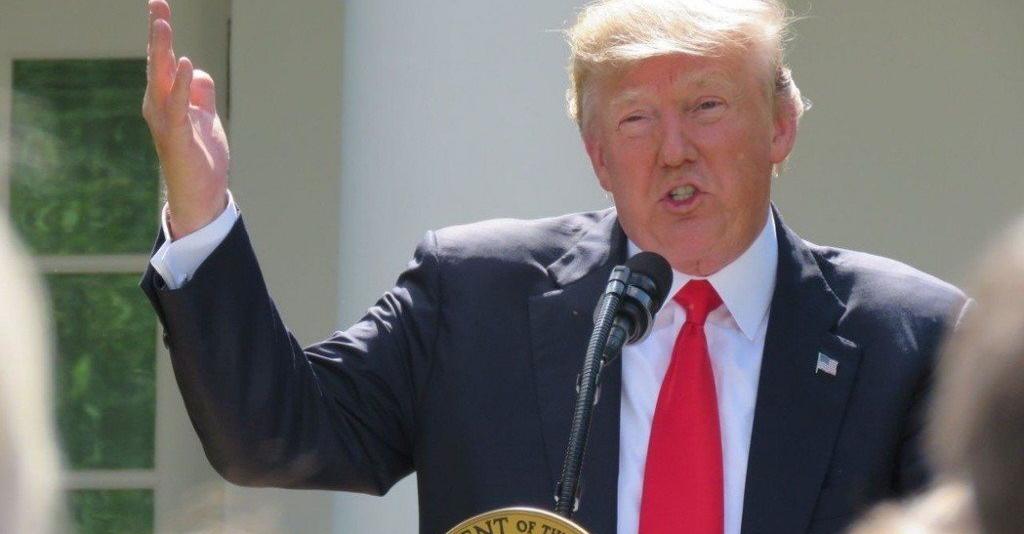本會秘書長、國立政治大學國際事務學院黃奎博副院長於聯合報的評論文章〈川普的一言堂內縮型外交〉
美國川普政府的人事不斷異動,特別是川普上任時任命的幾位將軍,在今年底前全部成為一介平民。
......曾在小布希時代任職國務院參事的柯恩,於二○一九年一、二月號的《外交事務》季刊指出,川普「正是很多評論家長期以來批評的那種人:逞強好鬥、盛氣凌人、惰於思考、脾氣暴躁以及迷戀自我」。...美國內部政治反對力量讓他難以對外交事務長期保持關注,川普的房地產開發經驗則讓他具有高度「避險」觀念,加上美國經濟復甦轉移了部分人士的焦點,行政官僚又持續做為維持美國外交政策的中道力量,這些都讓川普政府可以持續例如對盟邦降低承諾、不支持由美國主導建立的國際秩序等片面作為,但不至於「出軌」。
前述相對樂觀的分析,在馬提斯和鄧福德準備下台後,恐怕必須向下修正,特別是馬提斯這位被認為是穩定美國外交政策的重要力量離開之後。
馬提斯在辭職信裡提到,對於中國大陸與俄羅斯專制擴張的野心,必須加以遏制,這點與川普的說法一致;但他似乎不贊同川普那種「『美國第一』的內縮型外交政策」,因為美國若只求省錢,不提供防衛和外交上的公共財,會讓始終對美構成威脅的俄羅斯和快速崛起的中國大陸,盡情的對美國盟邦恩威並施,弱化了美國主導下的自由世界秩序。
如果說國安顧問、國務卿、國防部長是美國國安外交鐵三角的話,川普在找龐培歐做國務卿、波頓做國安顧問後,接替馬提斯的國防部長人選應是以川普唯命是從的優先,才能順利推動川普心中的外交與國防政策。當川普的國安外交團隊充斥愈來愈多他自認可靠且聽命行事的官員,致使最高決策團隊變成同質思考的一言堂。
倘若如此,美國外交政策可能會更快的內縮並失去國際信用,讓世界局勢更加詭譎難測。
以上截自:https://udn.com/news/story/7339/3556001
Secretary General of the Council and Vice President Huang Kuibo of the School of International Affairs of National Chengchi University, in the opinion article of the Union newspaper "Trump's down-to-date diplomacy"
The Trump administration is constantly changing personnel, especially the generals appointed by Trump when he took office, all became civilians by the end of the year.
Cohen, who served as a State Department senator during the Bush era, pointed out in the January-February 2019 issue of Foreign Affairs quarterly that Trump "is exactly the kind of person that many commentators have long criticized: aggressive, bully, lazy, grumpy, and self-obsessed."... Internal political opposition in the United States makes it difficult for him to keep a long-term focus on foreign affairs, Trump's real estate development experience has given him a highly "haven" concept, combined with the US economic recovery shifting the focus of some people, and the administration's continued role as a middle force in maintaining US foreign policy, all allow the Trump administration to continue unilateral actions such as reducing its commitment to its allies and not supporting the US-led international order, but not "dead".
The above relatively optimistic analysis will probably have to be revised downwards as Mattis and Dunford prepare to step down, especially after Mattis, considered an important force in stabilizing U.S. foreign policy, leaves.
Mattis's resignation letter mentions that China's and Russia's autocratic expansion ambitions must be contained, consistent with Trump's statement, but he seems to disagree with Trump's "America First" internal foreign policy, because if the United States seeks to save money and not provide public goods for defense and diplomacy, Russia, which always poses a threat to the United States, and the fast-rising mainland China, will be able to do its best to our American allies, and weakens the US-led liberal world order.
If the national security advisor, secretary of state, and secretary of defense are the iron triangle of US national security diplomacy, Trump is looking for Pompeo as secretary of state and Bolton as national security advisor, the candidate to replace Mattis as secretary of defense should be the priority of Trump's orders, in order to successfully promote the foreign and defense policy in Trump's heart. When Trump's national security diplomatic team is filled with more and more officials he sees as reliable and obedient, the top decision-making team becomes homogeneous thinking.
If so, U.S. foreign policy could shrink faster and lose international credit, making the world situation more unpredictable.
The above is from: https://udn.com/news/story/7339/3556001
美國川普政府的人事不斷異動,特別是川普上任時任命的幾位將軍,在今年底前全部成為一介平民。
......曾在小布希時代任職國務院參事的柯恩,於二○一九年一、二月號的《外交事務》季刊指出,川普「正是很多評論家長期以來批評的那種人:逞強好鬥、盛氣凌人、惰於思考、脾氣暴躁以及迷戀自我」。...美國內部政治反對力量讓他難以對外交事務長期保持關注,川普的房地產開發經驗則讓他具有高度「避險」觀念,加上美國經濟復甦轉移了部分人士的焦點,行政官僚又持續做為維持美國外交政策的中道力量,這些都讓川普政府可以持續例如對盟邦降低承諾、不支持由美國主導建立的國際秩序等片面作為,但不至於「出軌」。
前述相對樂觀的分析,在馬提斯和鄧福德準備下台後,恐怕必須向下修正,特別是馬提斯這位被認為是穩定美國外交政策的重要力量離開之後。
馬提斯在辭職信裡提到,對於中國大陸與俄羅斯專制擴張的野心,必須加以遏制,這點與川普的說法一致;但他似乎不贊同川普那種「『美國第一』的內縮型外交政策」,因為美國若只求省錢,不提供防衛和外交上的公共財,會讓始終對美構成威脅的俄羅斯和快速崛起的中國大陸,盡情的對美國盟邦恩威並施,弱化了美國主導下的自由世界秩序。
如果說國安顧問、國務卿、國防部長是美國國安外交鐵三角的話,川普在找龐培歐做國務卿、波頓做國安顧問後,接替馬提斯的國防部長人選應是以川普唯命是從的優先,才能順利推動川普心中的外交與國防政策。當川普的國安外交團隊充斥愈來愈多他自認可靠且聽命行事的官員,致使最高決策團隊變成同質思考的一言堂。
倘若如此,美國外交政策可能會更快的內縮並失去國際信用,讓世界局勢更加詭譎難測。
以上截自:https://udn.com/news/story/7339/3556001
Secretary General of the Council and Vice President Huang Kuibo of the School of International Affairs of National Chengchi University, in the opinion article of the Union newspaper "Trump's down-to-date diplomacy"
The Trump administration is constantly changing personnel, especially the generals appointed by Trump when he took office, all became civilians by the end of the year.
Cohen, who served as a State Department senator during the Bush era, pointed out in the January-February 2019 issue of Foreign Affairs quarterly that Trump "is exactly the kind of person that many commentators have long criticized: aggressive, bully, lazy, grumpy, and self-obsessed."... Internal political opposition in the United States makes it difficult for him to keep a long-term focus on foreign affairs, Trump's real estate development experience has given him a highly "haven" concept, combined with the US economic recovery shifting the focus of some people, and the administration's continued role as a middle force in maintaining US foreign policy, all allow the Trump administration to continue unilateral actions such as reducing its commitment to its allies and not supporting the US-led international order, but not "dead".
The above relatively optimistic analysis will probably have to be revised downwards as Mattis and Dunford prepare to step down, especially after Mattis, considered an important force in stabilizing U.S. foreign policy, leaves.
Mattis's resignation letter mentions that China's and Russia's autocratic expansion ambitions must be contained, consistent with Trump's statement, but he seems to disagree with Trump's "America First" internal foreign policy, because if the United States seeks to save money and not provide public goods for defense and diplomacy, Russia, which always poses a threat to the United States, and the fast-rising mainland China, will be able to do its best to our American allies, and weakens the US-led liberal world order.
If the national security advisor, secretary of state, and secretary of defense are the iron triangle of US national security diplomacy, Trump is looking for Pompeo as secretary of state and Bolton as national security advisor, the candidate to replace Mattis as secretary of defense should be the priority of Trump's orders, in order to successfully promote the foreign and defense policy in Trump's heart. When Trump's national security diplomatic team is filled with more and more officials he sees as reliable and obedient, the top decision-making team becomes homogeneous thinking.
If so, U.S. foreign policy could shrink faster and lose international credit, making the world situation more unpredictable.
The above is from: https://udn.com/news/story/7339/3556001
Images 1 of 1




 256 bit SSL Encryption
256 bit SSL Encryption